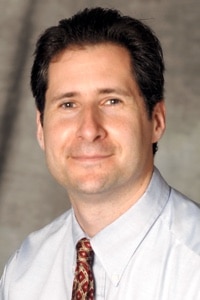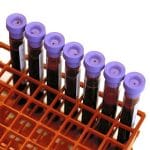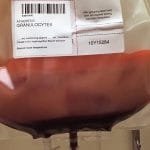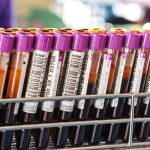Do the people making transfusion decisions have enough training to be able to do so correctly? If not, how do we fix it? Dr. Rich Haspel is here to help us answer both questions!

Dr. Rich Haspel
The next day, while an 80 year old male with acute leukemia is getting a platelet transfusion, he begins to feel short of breath. The nurse overseeing the transfusion asks the hematology fellow, “What do you want me to do next, doctor?” The fellow feels his pulse quicken, and he prepares to give his best answer…
Not So Far Fetched
Situations like this are real and occur every single day in hospitals around the world. Many studies have shown a significant lack of basic Transfusion Medicine training for clinical physicians, and a not-too-surprising accompanying knowledge gap. Of course there are exceptions, but generally, clinical physicians don’t know all we wish they did.
Side note: This issue is one of the main reasons I keep this web site going! I want to help everyone learn the basics of transfusion medicine.
Today’s guest, Dr. Rich Haspel, worked with the BEST Collaborative to try to formally evaluate where we stand using a first-of-its-kind validated Transfusion Medicine exam and survey. Rich is here to share details on what he found. The results won’t surprise you (there’s a gap), but the thing I like most is that Dr. Haspel is passionate about changing the situation, and he will give us tips on how to use the exam to make things better in your hospital or in your own clinical practice. Please check out the references below, and write to Dr. Haspel to get a copy of the exam yourself!
To my clinical friends: No one likes anyone, much less some pathologist suggesting they don’t know enough! I hope the message here is clear, though: We share this data respectfully, and we understand that you can’t know what you’ve never really been taught! Through targeted early education and interaction with Transfusion Medicine professionals who care, I believe we can improve this situation, and quickly!

Dr. Rich Haspel
The next day, while an 80 year old male with acute leukemia is getting a platelet transfusion, he begins to feel short of breath. The nurse overseeing the transfusion asks the hematology fellow, “What do you want me to do next, doctor?” The fellow feels his pulse quicken, and he prepares to give his best answer…
Not So Far Fetched
Situations like this are real and occur every single day in hospitals around the world. Many studies have shown a significant lack of basic Transfusion Medicine training for clinical physicians, and a not-too-surprising accompanying knowledge gap. Of course there are exceptions, but generally, clinical physicians don’t know all we wish they did.
Side note: This issue is one of the main reasons I keep this web site going! I want to help everyone learn the basics of transfusion medicine.
Today’s guest, Dr. Rich Haspel, worked with the BEST Collaborative to try to formally evaluate where we stand using a first-of-its-kind validated Transfusion Medicine exam and survey. Rich is here to share details on what he found. The results won’t surprise you (there’s a gap), but the thing I like most is that Dr. Haspel is passionate about changing the situation, and he will give us tips on how to use the exam to make things better in your hospital or in your own clinical practice. Please check out the references below, and write to Dr. Haspel to get a copy of the exam yourself!
To my clinical friends: No one likes anyone, much less some pathologist suggesting they don’t know enough! I hope the message here is clear, though: We share this data respectfully, and we understand that you can’t know what you’ve never really been taught! Through targeted early education and interaction with Transfusion Medicine professionals who care, I believe we can improve this situation, and quickly!
About My Guest:
Dr. Rich Haspel received his Bachelor of Science degree from Stanford University, his PhD in Molecular Cell Biology from Rockefeller University, and his MD from Cornell University. He completed an internship in medicine and a residency in clinical pathology at Brigham and Women’s Hospital in Boston. He received his fellowship training in Transfusion Medicine at Massachusetts General Hospital. Dr. Haspel is currently a Transfusion Medicine physician, Medical Director of the Stem Cell Processing Laboratory, and the Director of Medical Education in the Department of Pathology at Beth Israel Deaconess Medical Center. He is also an Associate Professor of Pathology at Harvard Medical School. Dr. Haspel’s primary academic focus is medical education. He has received NIH funding to facilitate the work of a national committee in developing a genomics curriculum for pathology residents. He has also led international studies to evaluate internal medicine resident, hematology fellow, and pediatric resident Transfusion Medicine knowledge using validated surveys and exams.
DISCLAIMER: The opinions expressed on this episode are those of my guest and I alone, and do not reflect those of the organizations with which either of us is affiliated. Neither Dr. Haspel nor I have any relevant financial disclosures.
Further Reading:
Note: You can (and should) email Dr. Haspel to get your very own copy of the exam we discuss in this episode. His email address is published in the first three articles listed below, but for privacy purposes, I’m not putting it directly on the page.
- Article describing development of the validated exam and survey: Haspel RL et al. Development of a validated exam to assess physician transfusion medicine knowledge. Transfusion 2014;54:1225-1230. Also see a video about this article on TransfusionNews.com.
- First use of the exam (medicine residents): Haspel RL et al. Internal medicine resident knowledge of transfusion medicine: results from the BEST-TEST international education needs assessment. Transfusion 2015;55:1355–1361.
- Second use of the exam (hematology trainees): Lin Y et al. BEST-TEST2: Assessment of hematology trainee knowledge of transfusion medicine. Transfusion 2016;56;304–310.
- Article describing the state of transfusion medicine education in US medical schools: Karp JK et al. Transfusion medicine in American undergraduate medical education. Transfusion 2011;51:2470-2479.
- Report of use of the BEST-TEST to evaluate educational curriculum: Lin Y et al. Evaluation of “Transfusion Camp,” a postgraduate transfusion medicine education program using the BEST-TEST knowledge assessment tool. Transfusion 2015;55:2049-2051.














I think nurses should also be more aware of transfusion medicine. Once, I called to the floor to let a nurse know the plasma was ready for their patient and there was a long pause followed by “uhhh I didn’t order plasma, I ordered FFP”. In my short time of blood bank experience, I only graduated in May, my biggest frustration with Doctors is when they order a product like cryo and then 2 minutes later call up screaming why it isn’t ready yet. I know they’re in a very hard situation trying to save lives, but maybe if they knew that cryo must be thawed first and that we don’t keep any thawed 24/7 because of the short outdates once thawed, they would better understand where we come from.
I understand that there is an enormous amount of knowledge to be included in medical school curriculum, which seems nearly impossible. But I would really hope that they can include a little bit of basic training for transfusion medicine, at least some basic information on the most often utilized products, i.e., what forms do different products come in? How would they be prepared and approximately how long would the preparation take? What about their shelf life? For instance, if FFP is ordered, it will be thawed. Thawed plasma has a short shelf life and it can not be re-freeze again. So if you order FFP and then cancel it, it could like be wasted (if no one else needs it before it expires). And if we got the products ready, especially for the products with short shelf life, please make sure to use them as soon as possible. I understand that there are always a lot of things happening at the bed side (patient need to go for tests or procedures, etc.), but if you won’t make it before the product expires, it will also be wasted. We will have to give you another unit if you come by 5 minutes after the previous one outdates. All the blood products are donated by our generous blood donors, and we really want to make the best use out of every single precious unit as much as we can.
I think residents should practice and get interest in transfusion medicine I have observed many doctors behaves likes tx. Medicine is very tuff and dry.
Secondly,everybody from consultant to technologist must be aware of tx.med .
What you are giving to patients contains potential risks and benefits to them.